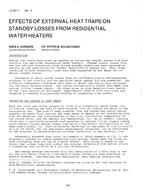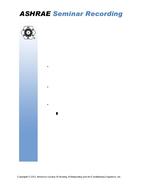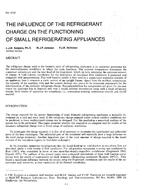The vapour pressure in a bubble is dependent upon the surrounding liquid pressure, the surface tension of the fluid, and the radius of curvature of the liquid/vapour interface. Since the bubble saturation temperature, and hence the surrounding liquid temperature is above the liquid saturation temperature, the liquid is referred to as superheated. The superheat is usually related to be vapour/liquid pressure difference by integrating the Clapeyron equation. When this integration is carried out by assuming some or all of the integrand to be constant, significant errors can occur in the superheat prediction for bubbles smaller than 1 micrometre. A curve fit of saturation temperature vs. pressure data is shown to be a much simpler and accurate method of determining the liquid superheat required for equilibrium.
KEYWORDS: year 1996, calculating, bubbles, vapour pressure, liquids, pressure, surface tension, saturation temperature, accuracy, equilibrium, thermodynamics
Citation: ASHRAE Trans. 1996, vol.102, part 1, paper number 3971, 380-384, 11 figs., 2 tabs., refs.
Product Details
- Published:
- 1996
- File Size:
- 1 file , 480 KB
- Product Code(s):
- D-16547


